A lifetime of suffering for Kashmiris with dwarfism
From childhood to adult life, little people of the disputed region live to bear insults and inhuman treatment
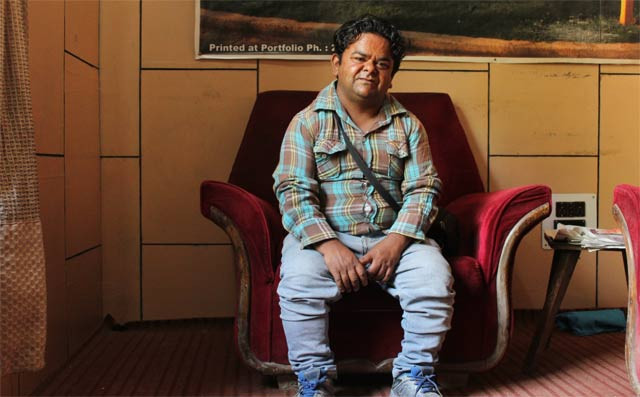
Tanveer Ahmad. PHOTO: NAZIMA SIDIQ
A resident of Kupwara in Indian-administered Kashmir, Ahmad believes being “a person with dwarfism is akin to being a person with disabilities”. “The worst thing about being short is that there is nothing we can do about it. Overweight people can follow a diet and exercise, and skinny people can eat and lift weight,” Ahmad complains as we chat inside a cafe located on the bank of river Jhelum near his office in Srinagar - the summer capital of the strife-torn state.
Ahmad lives with his three sisters and three brothers who all are of average height; during their childhood, they too used to poke fun at him. “It was one of the most difficult phases of my life. I always wished to die,” he recalls with a sigh and says family support is very important for little people.
For little people, big disappointment in the job market
According to Ahmad, people with dwarfism are treated like children at work places and are hardly taken seriously. During his early academic years, television caught Ahmad’s attention; he wanted to join the entertainment industry to make money and to also give a befitting reply to those who believed he was of no good. “After passing Grade 10, I successfully managed to enter the industry but due to my short height, I ended up editing video tapes,” he shares, lamenting that little people are never judged on the basis of their skill and talent.
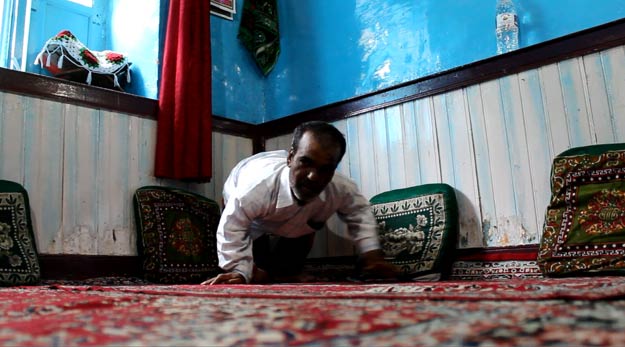 Abdul Hameed Sheikh. PHOTO: NAZIMA SIDIQ
Abdul Hameed Sheikh. PHOTO: NAZIMA SIDIQFor little people like Ahmad, it’s also difficult to find life partners as he says women often dream of tall and handsome men. “Friends, relatives and acquaintance usually come forward to find a perfect life partner for everyone but in our case, they act as a mute spectator. With no matchmakers to help us, we have to find someone on our own,” Ahmad says.
The people with dwarfism who do manage to find a life partner, Ahmad says they become internet celebrities for all the wrong reasons. “Our pictures are shared on social networking sites and I don't need to tell you what happens later,” he says.
In the summer of 2013, Ahmad married Hafiza Begum who lived in his neighbourhood; his sister acted as a matchmaker. A few years later, the couple was blessed with a baby boy, Adnan and since that day, Ahmad has focused all his energies to prove he is a good father. “I want to be a good parent and hopefully height won’t be criteria for being one,” Ahmad says with a tinge of bitter sarcasm.
Dwarfism, however, sometimes does act as a hurdle in Ahmad's fatherhood. He recalls how patients and doctors alike at a government hospital refused to help him when Adnan was suffering from pneumonia. “Instead of helping a disabled person, people at the hospital rebuked and insulted us for trying to enter the doctor’s chamber before our turn. I too have sentiments, I too get angry but I am helpless; I can never stand up for my family because of my height,” Ahmad says.
Double whammy
Less than four kilometres away from the city centre Lal Chowk lives 4.1 feet tall Abdul Hameed Sheikh. Now a 50-year-old man, Sheikh has been working as a peon at a government school for more than 30 years. Before this, he was working with a local tailor to learn the tricks of the trade; however, a wrongly-stitched trouser landed him in trouble with his master. “My teacher hit me in the back of my neck with a ruler; I collapsed and fell into a drain,” Sheikh remembers.
Pakistani man with dwarfism loses deportation fight in UK
Sheikh was rescued by Jalali Sahab, then principal of the government school he works at, who took him to the school building. “Once I regained my senses, I was not able to stand up and Jalali Sahab took care of me like a child. After the incident, I was a person with dwarfism and a person with a physical disability; taking pity on my condition, Jalali Sahab offered me a job,” he narrates sitting on an old unpolished wooden table-chair near the school gate.
Unlike Ahmad, Sheikh was lucky to have supportive siblings. After the death of his parents, his five brothers took care of him. Two years ago, when Shiekh was hospitalised for 15 days to undergo surgeries for urinary bladder suspension and removal of gallstones, his brothers stayed by his bed the entire time.
Sheikh’s sister-in-law shares how her husband has maintained an organised record of his medical reports and how he doesn’t tolerate anything against him. “Once I called Sheikh by a funny nickname and my husband did not speak to me for three days,” she shares.
For Sheikh, kindness is not limited to just his family members. Two years ago when his special red bicycle stopped working, he found a few teenagers to push his bicycle like a pushcart to wherever he needs to go. “I purchased the second-hand vehicle for $170 with my savings from another person with disabilities and dwarfism; I approached the Social Welfare Department for help but to no use. I chose not to visit them again and continue to use the defected one,” Sheikh says.
If real life mockery was not enough, Sheikh says media has also not been nice to little people. “I believe they are making fun of us; aren’t they?” he asks innocently. “I understand what we see on the screen is fiction but producers and directors portray people with dwarfism as clowns; we are not clowns, we are people with different abilities and needs. Whenever I see such shows, my heart aches,” he shares.
Lifetime of misery
While little people struggle with their lives, their loved ones also share the pain and sufferings. Haleema*, mother of children with dwarfism, finds it difficult to put in words what her family has been through. “From our relatives, friends to neighbours, no one ever misses a chance to ridicule us,” she shares as we sit in their drawing room.
“My daughters, Simran* and Hoorain*, always wanted to attend firresaal and satiumsaal - local wedding events - but were never invited. Once, I just sent Hoorain but she was told to leave because it was embarrassing for our relatives to take her along. She came back home in tears,” Haleema shares, who herself is of average height.
When looking for a groom for Hoorain, Haleema says everyone acted as a barrier with even matchmakers making fun of her. The effect was such that Hoorain fell into depression and started taking medicines to grow taller without consulting a doctor. “The pills didn’t change her height but her health deteriorated day by day,” Haleema says.
Now married to a person of average height, Haleema says Hoorain is happy though their financial condition is not good.
Hoorain’s sister Simran also joined the conversation after several requests. “She is a bit arrogant,” her mother warns. The words that come out of her mouth only confirm the statement. “Why do you want to talk to me? Sorry, I don’t want to talk. I don’t face any hardship; can’t you see I am happy? You can leave if you have some self-respect,” Simran blurts and walks out of the room leaving Haleema embarrassed.
Her close friend Iqra Bhatt* attributes her short temper to what she went through at school and college. “We have to put our belongings on high shelves and as Simran couldn’t reach them, she felt sad. She stayed alone and slowly, slowly began to lose her cool. The final outcome is in front of you,” she explains.
Simran also suffered from a heartbreak which left a lasting effect. As Bhatt narrates, she fell for a boy named Shahzad* via Facebook chats. “She avoided meeting him so that he doesn’t find out about her height but showed him her face through a window once. When they did meet finally, Shahzad broke up with her because of her dwarfism; Simran’s first love turned out to be her last,” Bhatt says.
*Names have been changed to conceal identity.
Muheetul Islam and Tabish Khan are freelance journalists from Indian-administrated Kashmir with master’s degree in journalism from Central University of Kashmir.

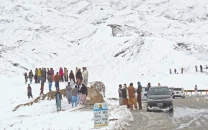

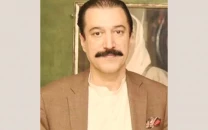
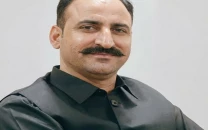














COMMENTS
Comments are moderated and generally will be posted if they are on-topic and not abusive.
For more information, please see our Comments FAQ